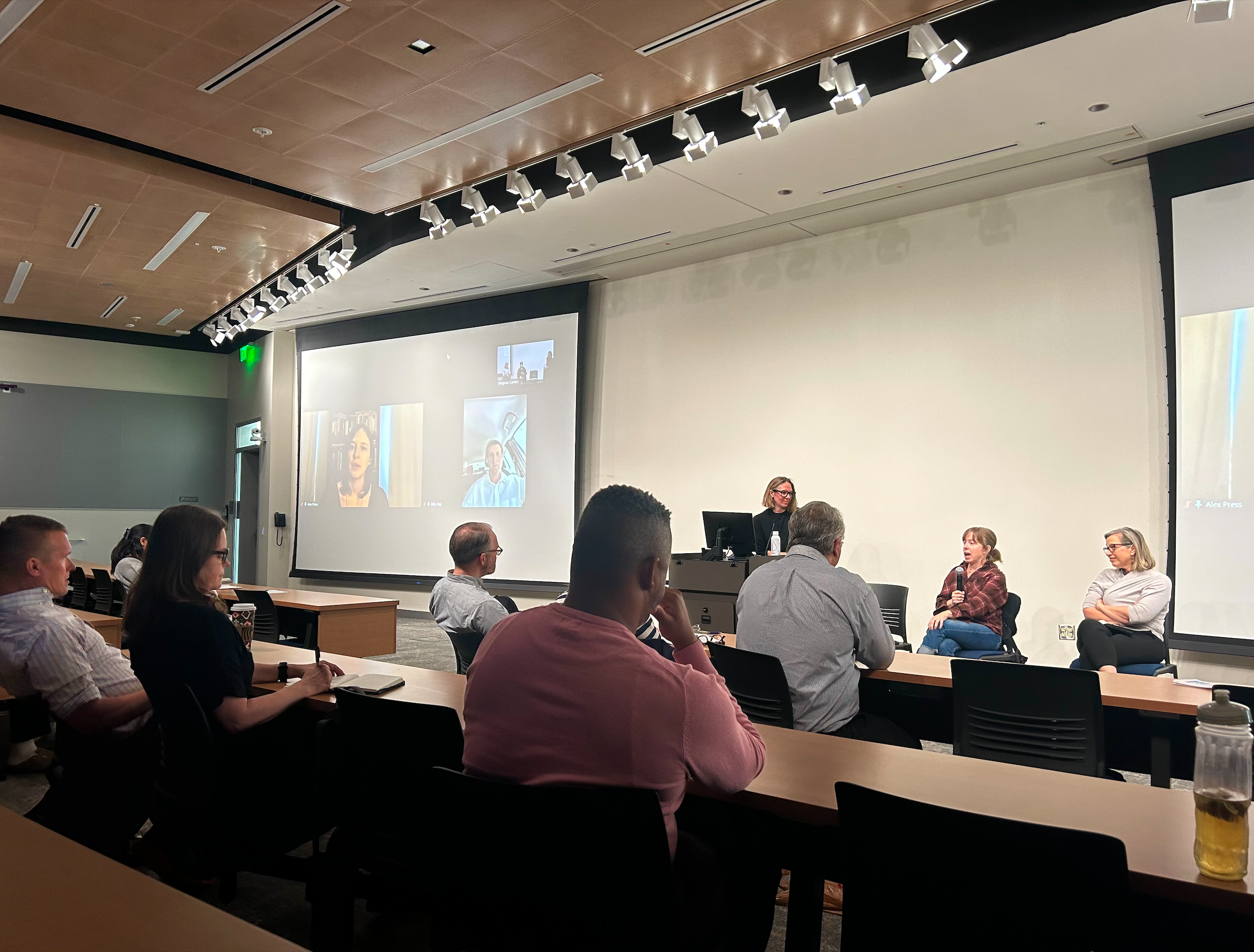WGA members detail the 2023 strike and express the successful changes made from the outcome.
Members from the Writers Guild of America (WGA) paid a visit to Toros to discuss the recent WGA labor fight on Thursday Nov. 9.. CSUDH hosted the event after the six month strike ended when the union reached an agreement for a new contract with studios on Nov. 8.
The event was co-sponsored by the Labor Studies Department and Hollywood by the Horns, a program on campus that brings students closer to professionals in the entertainment industries. Members of the WGA detailed the timeline of the strike including what led up to the strike, the strike itself, and the results of the strike.
The contract between the studios and the WGA is renegotiated every three years. As the industry has shifted to streaming, writers have not been properly compensated for their work from residuals, which became the central issue for the strike. As a new contract was approaching, this was the WGA’s chance to demand better wages.
Before the strike, studios offered writers a one-time fee for their work and writers did not receive additional compensation from streaming views. This lack of residuals meant that writers did not benefit financially from the long-term success or popularity of their creations.
The WGA also wanted artificial intelligence, such as ChatGPT, to be used as a tool to help initiate script ideas and not a tool to replace the writers. Resume Builder revealed that one in four companies that utilize ChatGPT has replaced their workers. The WGA directly fought against this and claimed humans needed to stay as the main creatives.
The strike began on May 2 and ended on Sept. 27. It lasted 148 days, which is the second longest strike in the industry’s history, according to Axios.
Megan Mostun-Brown, a distinguished playwright, producer, and writer in television and film was one of the WGA members who spoke to the Toros. As a strike captain, Brown was a liaison between a show or movie crew and the guild. Everyday from 1 p.m. to 5 p.m. Brown picketed outside various studios.
“It was a really transformative experience and I am so glad I did it because it is awesome to be out in the frontline,” Brown said during the panel.
As negotiating co-chair for the WGA, Billy Ray reflected on the connection between writers and studios while speaking on the panel. Ray is an Academy Award winning screenwriter and film director who famously worked on the films Hunger Games and Captain Phillips. During the strike, Ray explained, it wasn’t writers versus studios and if the writers won, the studios must have lost. He emphasized that writers depend on studios to be successful. However, for a studio to be successful, they must properly compensate their writers for their work so that they are able to survive.
“We will never ask for something that is good for writers but bad for the business,” Ray said while speaking at the panel. “We need Warner Brothers to make a lot of money. We, in fact, believe that the survival of writers is a necessity for the business.”
The Writers Guild of American West outlines main points of the new contract between the WGA and studios. Both parties have agreed to increase writers’ pay by five percent immediately, another four percent in May 2024, and finally another 3.5percent in May 2025. Health fund contributions will rise and artificial intelligence, such as ChatGPT, cannot write or rewrite material and will require any of its contributions to be disclosed to writers.

